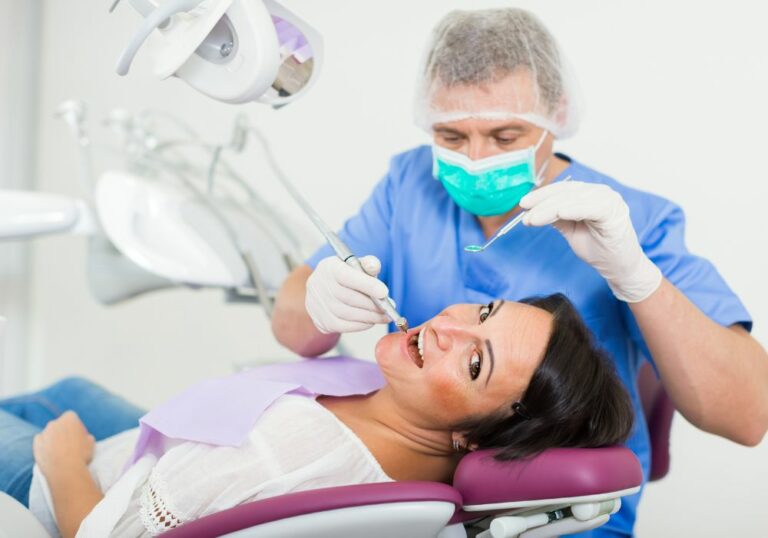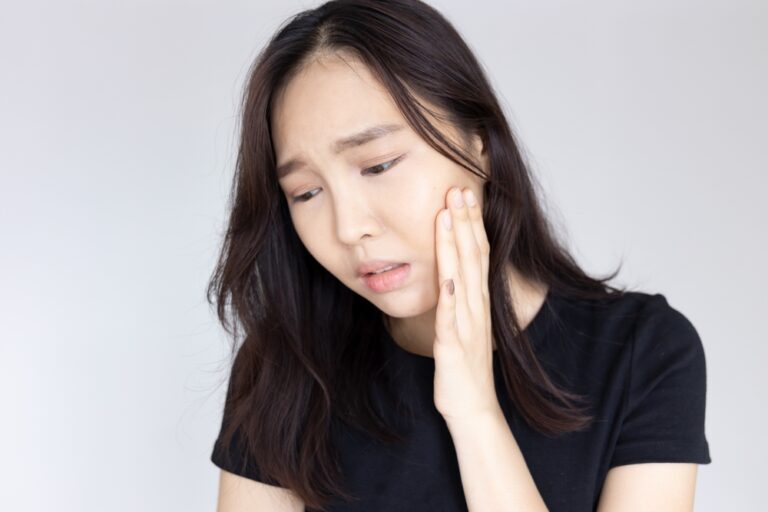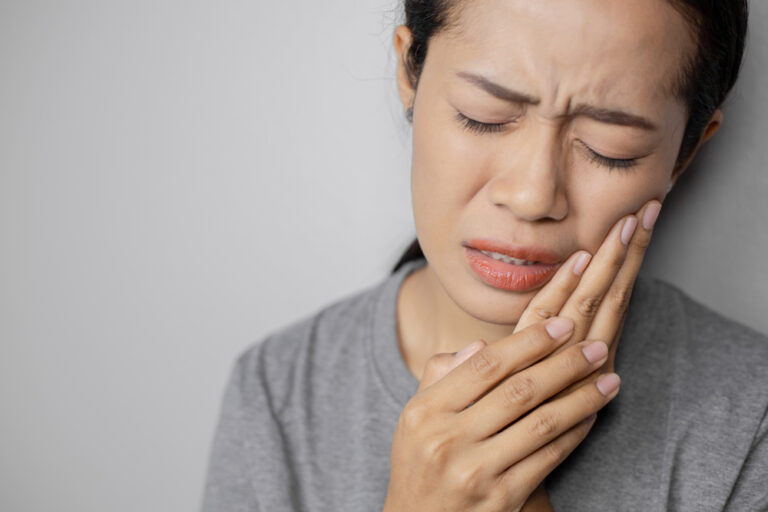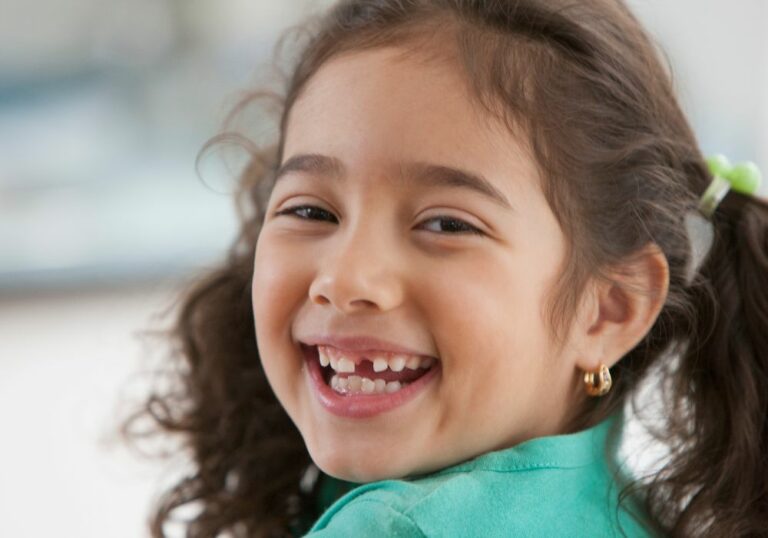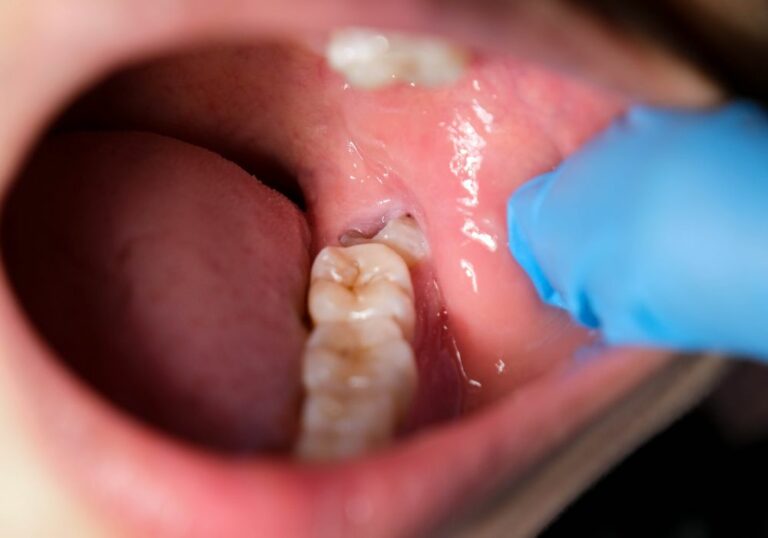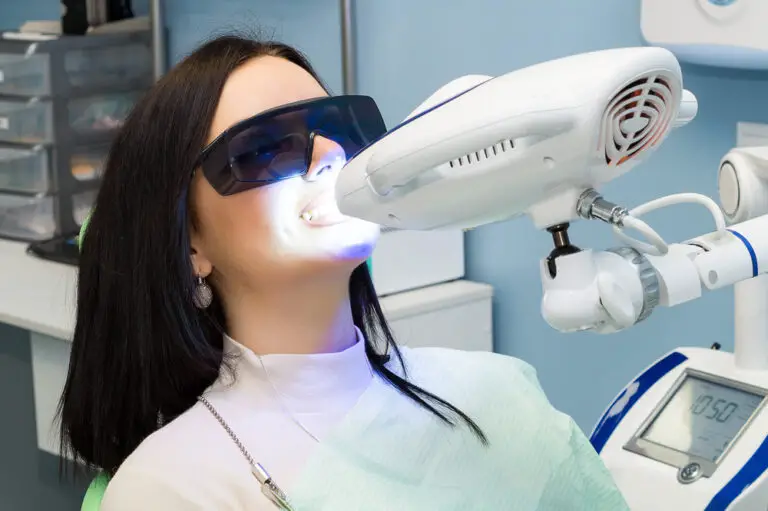If you’re getting braces for the first time, you may be wondering what to expect during the first few days. One common question that many people have is whether they can brush their teeth on the first day of braces. The answer is yes, you can and should brush your teeth on the first day of braces.
Brushing your teeth is an important part of maintaining good oral hygiene, and it becomes even more important when you have braces. While it may be uncomfortable at first, it’s important to continue brushing your teeth regularly to prevent any buildup of plaque or food particles around your braces. This can help prevent tooth decay and other oral health issues that can arise from poor oral hygiene.
It’s important to use the right technique when brushing your teeth with braces, as it can be a bit more challenging than brushing without them. In the following sections, we’ll discuss some tips and techniques for brushing your teeth with braces to help you maintain good oral hygiene throughout your treatment.
Understanding Braces
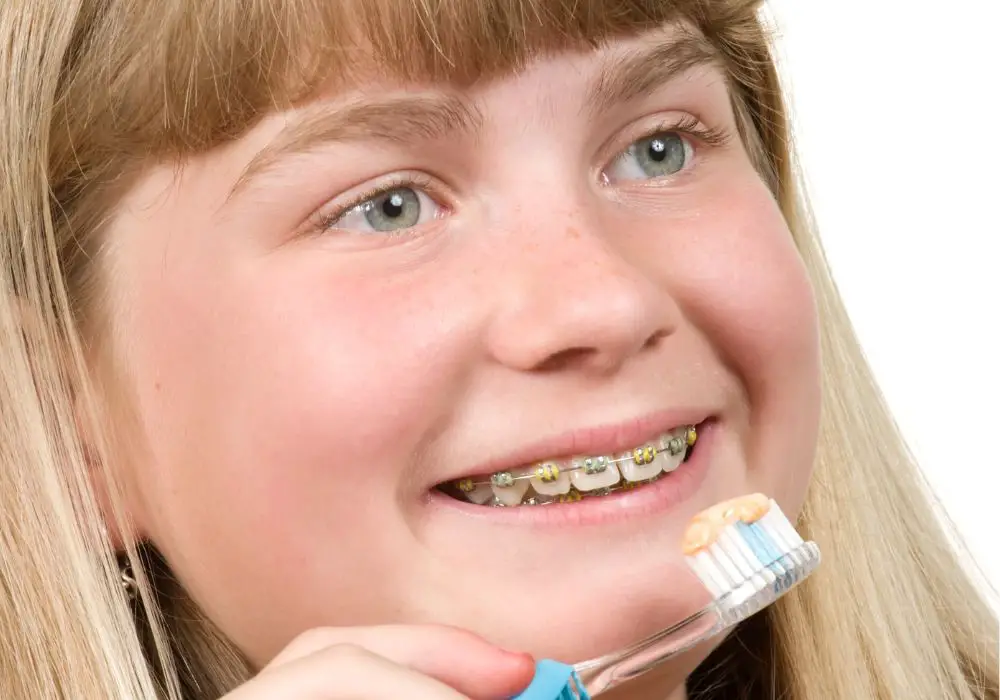
Getting braces can be a daunting experience, but it’s important to understand what they are and how they work. Braces are dental appliances used to straighten teeth, correct bite issues, and improve overall oral health. They consist of brackets, wires, and bands that work together to apply gentle pressure to move teeth into their proper positions.
Braces are not a one-size-fits-all solution and require customization for each patient’s unique needs. Your orthodontist will examine your teeth and create a treatment plan that may include different types of braces such as metal, ceramic, or lingual braces.
Once your braces are in place, you may experience some discomfort as your teeth adjust to the pressure. It’s important to maintain proper oral hygiene during this time to prevent any potential issues such as tooth decay or gum disease.
Brushing your teeth with braces can be a bit more challenging, but it’s crucial to keep your teeth and braces clean. You should brush your teeth at least twice a day for two minutes each time, using a soft-bristled toothbrush and fluoride toothpaste.
In addition to brushing, you should also floss daily and use an interdental brush to clean between your brackets and wires. Your orthodontist may also recommend using a mouthwash to help kill bacteria and freshen your breath.
Overall, understanding how braces work and how to properly care for them is essential for a successful treatment outcome. With proper care and maintenance, you can achieve a healthy, beautiful smile that lasts a lifetime.
First Day with Braces
Congratulations on taking the first step towards a healthier, more beautiful smile! The first day with braces can be exciting, but it can also be a little overwhelming. Here are a few things to keep in mind:
Oral Hygiene
It’s important to maintain good oral hygiene while wearing braces. You can brush your teeth on the first day of braces, but you’ll need to be careful. Your teeth and gums may be sensitive, so it’s important to be gentle. Here are a few tips:
- Use a soft-bristled toothbrush and fluoride toothpaste.
- Brush gently, using circular motions.
- Pay special attention to the areas around your brackets and wires.
- Rinse your mouth with water after brushing.
Eating
Your orthodontist will provide you with a list of foods to avoid while wearing braces. On the first day, stick to soft foods that won’t damage your braces or cause discomfort. Here are a few examples:
- Soup
- Yogurt
- Mashed potatoes
- Smoothies
Discomfort
It’s normal to experience some discomfort on the first day with braces. Your teeth may be sore, and your mouth may feel a little tender. Here are a few things you can do to alleviate the discomfort:
- Eat soft foods
- Take an over-the-counter pain reliever
- Apply a warm washcloth or heating pad to your jaw
Remember, the discomfort will subside in a few days, and you’ll be on your way to a beautiful smile!
Importance of Oral Hygiene with Braces
Taking care of your oral hygiene is important at all times, but it becomes even more crucial when you have braces. Braces can make it difficult to clean your teeth and gums properly, which can lead to various dental problems. Here are some tips on how to maintain good oral hygiene while wearing braces.
Brushing Teeth
Brushing your teeth is the most important step in maintaining good oral hygiene. It is recommended that you brush your teeth at least twice a day, and even more frequently when you have braces. Use a soft-bristled toothbrush and fluoride toothpaste to brush your teeth. Here are some tips for brushing your teeth with braces:
- Rinse off your toothbrush and apply your favorite toothpaste.
- Hold the toothbrush at a 45-degree angle to your gum line.
- Start moving the brush in circular motions around your braces and teeth.
- Brush the inside surfaces of your teeth and braces using a similar circular motion.
- Brush your tongue and the roof of your mouth to remove any bacteria.
Using Mouthwash
Mouthwash is another important tool in maintaining good oral hygiene. It can help kill bacteria and freshen your breath. Use an alcohol-free mouthwash to avoid any irritation. Here are some tips for using mouthwash with braces:
- Rinse your mouth with water before using mouthwash.
- Pour the mouthwash into a cup and swish it around your mouth for 30 seconds.
- Spit out the mouthwash and rinse your mouth with water.
Flossing
Flossing is essential for removing food particles and plaque from between your teeth and braces. It is recommended that you floss your teeth at least once a day. Here are some tips for flossing with braces:
- Use a floss threader to thread the floss under the wire of your braces.
- Gently move the floss up and down between your teeth and braces.
- Use a new section of floss for each tooth.
By following these tips, you can maintain good oral hygiene and prevent dental problems while wearing braces. Remember to visit your orthodontist regularly for check-ups and adjustments.
Potential Challenges on the First Day
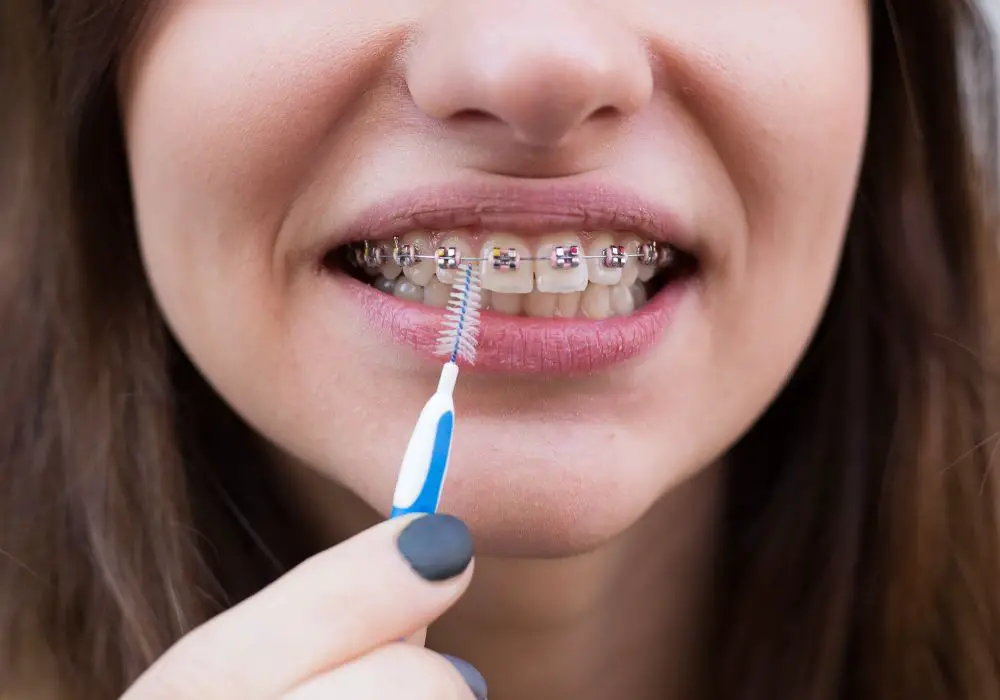
The first day with braces can be a little challenging, but it’s important to take good care of your teeth from the very beginning. Here are some things you might encounter on the first day:
Discomfort
It’s normal to feel some discomfort after getting braces. Your teeth may be sore, and your mouth may feel a little tender. You might also notice that your braces are rubbing against the inside of your cheeks or lips, which can cause some irritation. This discomfort should start to go away after a few days, but in the meantime, you can try some of the following tips:
- Use orthodontic wax to cover any brackets or wires that are causing irritation
- Rinse your mouth with warm salt water to help ease the soreness
- Take over-the-counter pain relievers like ibuprofen or acetaminophen as directed by your orthodontist
Adjusting to Eating and Drinking
It may take a little while to get used to eating and drinking with braces. Your teeth may feel a little sensitive, and you may need to avoid certain foods that are hard or sticky. Here are some tips to help you adjust:
- Stick to soft foods like soup, mashed potatoes, and yogurt for the first few days
- Avoid crunchy or hard foods like chips, popcorn, and apples
- Cut your food into small pieces to make it easier to chew
- Drink plenty of water to help keep your mouth hydrated
Brushing and Flossing
Brushing and flossing can be a little tricky with braces, but it’s important to keep your teeth and gums clean to avoid any problems. Here are some tips to help you brush and floss effectively:
- Use a soft-bristled toothbrush and fluoride toothpaste to brush your teeth for two minutes, twice a day
- Angle your toothbrush to clean around the brackets and wires
- Use a floss threader or orthodontic floss to clean between your teeth and under the wires
- Rinse your mouth with an antiseptic mouthwash to help kill bacteria and freshen your breath
With a little patience and practice, you’ll soon get used to life with braces. Just remember to take good care of your teeth and follow your orthodontist’s instructions for the best results.
Tips for Brushing Teeth on the First Day with Braces
Getting braces can be a big change for your teeth. Brushing your teeth on the first day with braces can be a bit overwhelming, but it is important to keep your teeth clean to avoid any complications. Here are some tips to help you brush your teeth on the first day with braces:
Use a Soft-Bristled Toothbrush
Your teeth and gums may feel sore after getting braces. Using a soft-bristled toothbrush can help you avoid any discomfort while brushing your teeth. A soft-bristled brush is gentle on your teeth and gums, and it won’t damage your braces.
Brush Gently
Brushing your teeth gently is important, especially on the first day with braces. The brackets and wires are new, and your teeth may be sensitive. Brushing too hard can cause discomfort and damage to your braces. Brush your teeth gently but thoroughly, taking care to clean around the brackets and wires.
Use Fluoride Toothpaste
Fluoride toothpaste can help strengthen your teeth and protect them from cavities. Brush your teeth with fluoride toothpaste twice a day, for at least two minutes each time. Make sure to brush all surfaces of your teeth, including the front, back, and chewing surfaces.
Rinse Your Mouth with Water
After brushing your teeth, rinse your mouth with water to remove any leftover toothpaste and food particles. Rinsing your mouth with water can help keep your mouth clean and fresh.
Use Interdental Brushes
Interdental brushes are small brushes that can help you clean between your teeth and around your braces. They are especially useful for getting into tight spaces where regular toothbrushes can’t reach. Use interdental brushes to clean between your teeth and under your wires.
Avoid Hard and Sticky Foods
Hard and sticky foods can damage your braces and make it difficult to keep your teeth clean. Avoid hard and sticky foods, such as popcorn, nuts, and candy, on the first day with braces. Stick to softer foods, such as soup, yogurt, and mashed potatoes, until your teeth adjust to the braces.
Brushing your teeth on the first day with braces can be a bit challenging, but with these tips, you can keep your teeth clean and healthy. Remember to brush gently, use fluoride toothpaste, and rinse your mouth with water. Use interdental brushes to clean between your teeth and avoid hard and sticky foods.
When to Seek Professional Help
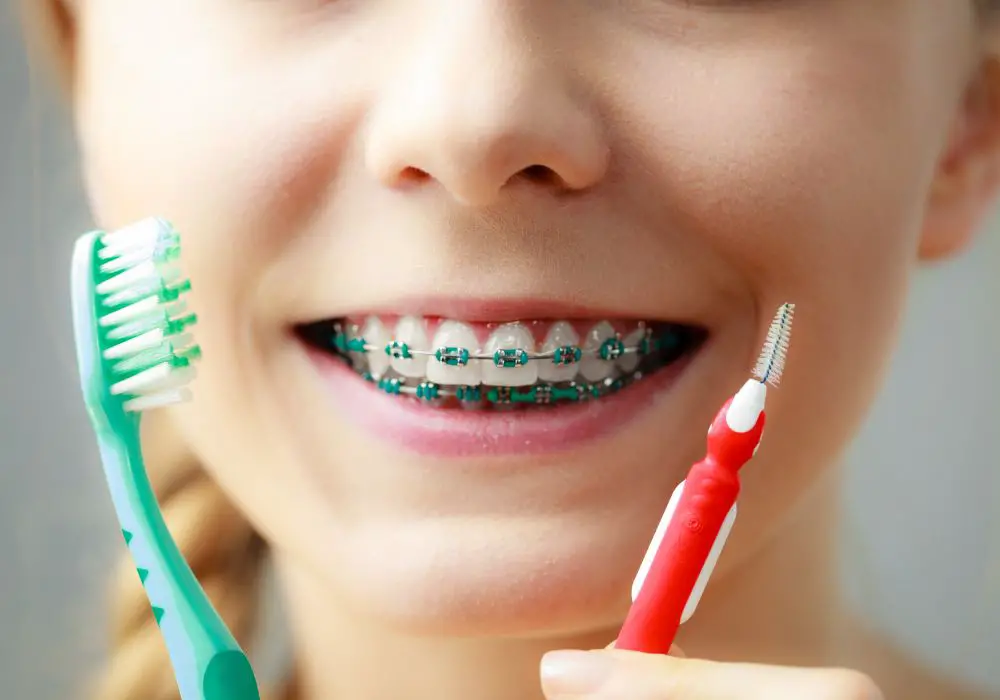
While most people experience some discomfort when they first get braces, it’s important to know when to seek professional help. If you experience any of the following issues, make an appointment with your orthodontist:
- Pain that doesn’t subside after a few days
- Sores in your mouth that don’t heal
- Loose or broken brackets or wires
- Swelling or bleeding in your gums
- A wire that is poking out and causing discomfort
It’s also important to keep up with regular appointments with your orthodontist. They will be able to monitor your progress and make any necessary adjustments to your treatment plan.
If you have any concerns about your braces or your oral health, don’t hesitate to reach out to your orthodontist. They are there to help you achieve a healthy, beautiful smile.
Frequently Asked Questions
What to eat with braces the first week?
During the first week of having braces, it is best to stick to soft foods that do not require a lot of chewing. Foods like soup, mashed potatoes, yogurt, and smoothies are good options. Avoid hard, crunchy, and sticky foods that can damage your braces or get stuck in them.
How long after getting braces can you eat solid food?
It is recommended to wait at least a day before eating solid foods after getting braces. This will give your mouth time to adjust to the braces and reduce any discomfort. After that, you can gradually introduce solid foods back into your diet, starting with soft foods and slowly working your way up to harder foods.
Do you have to brush your teeth after every meal?
It is recommended to brush your teeth after every meal when you have braces. This is because food particles can easily get stuck in your braces and cause plaque buildup, which can lead to tooth decay and gum disease. If you cannot brush your teeth after a meal, rinse your mouth with water to remove any food particles.
How to floss with braces?
Flossing with braces can be tricky, but it is important to do it regularly to remove any food particles that your toothbrush may have missed. Use a floss threader to thread the floss under the wire of your braces and then floss between each tooth. You can also use a water flosser to clean hard-to-reach areas.
Do I have to brush my teeth every time I eat with retainers?
Yes, it is important to brush your teeth every time you eat with retainers. This is because food particles can get trapped between your teeth and the retainers, leading to bad breath and tooth decay. Brush your teeth and clean your retainers with a soft-bristled toothbrush and mild soap or retainer cleaner.
How do you clean braces on the first day?
You should brush your teeth and clean your braces on the first day of getting them. Use a soft-bristled toothbrush and fluoride toothpaste to gently brush your teeth and braces in circular motions. Rinse your mouth with water and check your braces in a mirror to make sure they are clean and free of any food particles.

